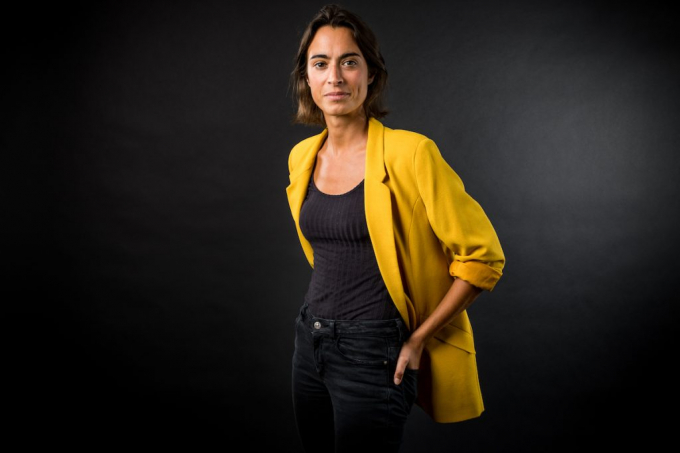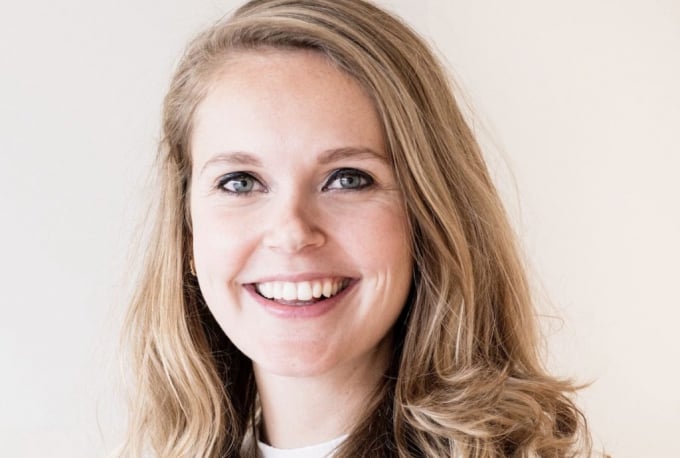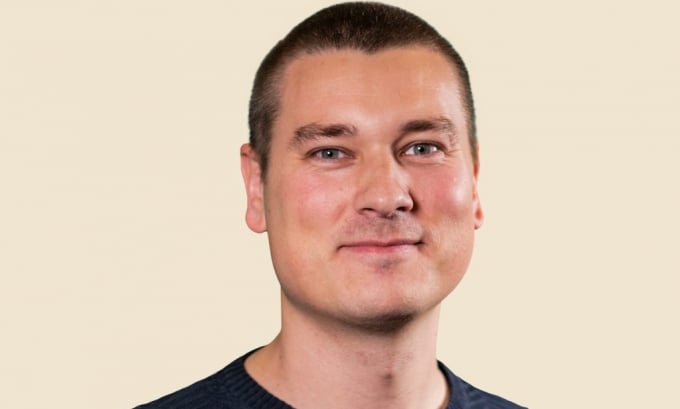June 3, 2025 | 21:03 GMT +7
June 3, 2025 | 21:03 GMT +7
Hotline: 0913.378.918
June 3, 2025 | 21:03 GMT +7
Hotline: 0913.378.918
By 2050, our food system will need to provide for an estimated 9.7bn people. Add to that the threat that climate change poses to our food security, and it’s clear that agriculture needs to adapt, fast.
Despite this urgency, agritech has largely remained a niche focus, with VC investment into European agritech startups at $726m this year. That dwindles in comparison to a sector like healthtech, which brought in $15.5bn this year.
And yet, early successes are stoking investors’ attention. These include the sector’s first unicorn, vertical farming startup Infarm, as well as insect farming startup InnovaFeed, which raised a €140m Series C last year.
With the sector picking up steam, Sifted asked four agritech-focused VCs which startups are on their radar. The only catch: they couldn’t nominate companies from their portfolios.

Laetitia de Panafieu, investment principal at Astanor Ventures. Belgium-based Astanor Ventures launched its $325m fund last year, Europe’s largest focused on agriculture and food. They support startups in Europe and North America. Portfolio companies include Ynsect, Infarm and Notpla.
Neofarm — France
Neofarm provides “turnkey farms” to partners, which are based on principles of regenerative agriculture to produce local, organic vegetables. The startup takes care of the farms’ installation and maintenance and provides software to manage and partially automate farming processes. CEO and cofounder Alexia is a role model for female entrepreneurship in the agritech sector and part of the Sista association, which promotes female entrepreneurship.
Neoplants — France
Although 90% of our time is spent indoors, indoor air pollution is 5x higher than outdoor air pollution due to volatile organic compounds (VOCs). Neoplants is developing plants that are bioengineered to eliminate air pollution at dramatically increased levels. The duo of founders has a strong technical and business background and an ambitious vision for growth in a category that they are building themselves. We love how the company is finding elegant ways to solve a significant problem via “plants with a purpose”.
FA Bio — UK
Currently, 2.5% of global greenhouse gas emissions can be directly attributed to synthetic fertilisers. FA Bio uses a unique targeted sampling strategy to collect microbial isolates from agricultural fields and investigate their potential to be developed into superior bioproducts. In this way, the startup helps discover microbial biofertilisers and biofungicides that could increase agricultural productivity whilst improving soil health. FA Bio founders Àngela and Kerry are extremely impact-driven, and creatively improve our understanding of the relationships between microbes and plants to contribute to the protection of our natural ecosystems.
EV Biotech — Netherlands
EV Biotech creates microbial cell factories (MCFs) for the industrial production of high-value chemicals and proteins. Using digital modelling, the startup determines ideal genetic changes with the highest compound yield for greater development efficiency. All of this is made possible by an exceptionally interdisciplinary and diverse team with different technical backgrounds working together towards a common goal.

Daniëlla Vellinga, associate director at Rabo Food & Agri Innovation Fund. The Rabo Food & Agri Innovation Fund was launched by Rabobank to invest in food and agriculture startups in Western Europe, Israel and the US from seed to Series B. The fund has invested in startups such as 30MHz, Saga Robotics and InnovoPro. The companies listed with an * are not portfolio companies of the Rabo Food & Agri Innovation Fund, but have partnerships with the fund through other initiatives including its Carbon Farming initiative and Foodbytes! Pitch 2021 programme.
Sencrop — France
Sencrop has the largest network of proprietary local weather stations in Europe, which provide reliable and ultra-local data to farmers via an app. With weather conditions becoming more extreme and unpredictable as a result of climate change, the startup allows farmers to anticipate weather conditions early on and streamline their farming operations to boost productivity and reduce costs.
Hummingbird Technologies* — UK
Hummingbird Technologies is an imagery analytics provider. Using AI to analyse data inputs on soil and weather conditions, the startup provides a data-driven tool which farmers can use to make decisions about their crop production. Examples include predicting yields, identifying areas in need of fertiliser as well as crop rotations, potentially allowing farmers to move towards regenerative agricultural practices more easily.
Protealis — Belgium
The alternative protein craze continues, with more and more consumers recognising the need to shift their consumption patterns. Producers of meat and milk alternatives need plant protein input and are increasingly looking for alternatives to soy. In this context, legume crops are emerging as a key piece of the puzzle.
Protealis develops seeds and seed technology for legume crops, including new varieties that are adapted to local conditions and profitable for the farmer to support local sourcing and optimal seed quality. Apart from the immense opportunity for alternative protein applications, legumes reduce the need for fertilisation and improve soil health as they can fix their own nitrogen. Growing more legume crops in Europe will therefore be good for farmers and for the environment.
Greeneye Technology* — Israel
Due to current broadcast spraying practices, weeds are developing resistance to herbicides, threatening food production. Using machine learning and AI, Greeneye has developed a technology that integrates into any agriculture sprayer. This allows farmers to optimise spraying by applying pesticides with great precision and in real-time, and identify and fight herbicide resistant weeds.

Mathias Brink Lorenz, investment manager agrifood at Rockstart. Rockstart is a global accelerator and VC investing across agriculture and food, energy and emerging technologies. Portfolio companies include Beyond Leather Materials, Råhandel and MyCrops.
Plantlab — Netherlands
Plantlab has developed proprietary “Plant Production Units”: indoor farms for growing produce locally in optimal growing conditions. We love that their production setup has a strong IP angle, and they have established a solid distribution model.
Chromologics — Denmark
Chromologics makes natural colourants using a non-GMO fermentation process, thereby offering an alternative to conventional natural colourants extracted from fruit and vegetables. They’re deeply rooted in the Danish tech ecosystem and their proprietary fermentation process represents a real innovation in the foodtech sector.
Fieldsense — Denmark
Fieldsense makes weather stations for farmers to support hyper-local weather forecasts and inform decisions on farming operations. Thanks to its strong team and solid IP, the startup has developed a distribution model with good network effects.

Christian Guba, associate at FoodLabs. FoodLabs is an early-stage, Berlin-based VC investing in food, health and sustainability startups. Portfolio companies include Formo, Mushlabs and Gorillas.
Glaia — UK
Glaia has developed a non-GMO biostimulant (fertiliser) that improves crops’ photosynthesis efficiency and significantly enhances their yields. This biostimulant uses a carbon nanomaterial commonly found in nature and a variety of foods and drinks to enhance plants’ natural characteristics and help better utilise existing land. CEO David Benito has a PhD in organic chemistry and is passionate about the topic.
FarmInsect — Germany
The cost of soy and fishmeal have risen dramatically and are connected to deforestation and overfishing. At the same time, insect feed often needs to be shipped over long distances, leading to increased prices and carbon footprints.
FarmInsect provides a turnkey solution including machinery and larvae so farmers can produce their own insect feed with rather low effort. This helps establish a more resilient, decentralised, and sustainable agriculture industry starting with aquafeed.
Honest AgTech — Netherlands
Honest AgTech is a robotics startup for greenhouses. The company has developed a proprietary operating system for their robots, which help with monitoring, deleafing, harvesting, and pruning tomatoes. This addresses both the lack of automation and labour shortages in greenhouses, which act as a bottleneck for scaling.
Founder and CEO Renji John combines business and engineering expertise as an ex-BCG consultant and mechanical engineer, and leads a very strong team of engineers based in the Netherlands, the “greenhouse” of Europe.
(Sifted.eu)

(VAN) Vikas Rambal has quietly built a $5 billion business empire in manufacturing, property and solar, and catapulted onto the Rich List.

(VAN) Available cropland now at less than five percent, according to latest geospatial assessment from FAO and UNOSAT.

(VAN) Alt Carbon has raised $12 million in a seed round as it plans to scale its carbon dioxide removal work in the South Asian nation.

(VAN) Attempts to bring down the price of the Japanese staple have had little effect amid a cost-of-living crisis.

(VAN) Fourth most important food crop in peril as Latin America and Caribbean suffer from slow-onset climate disaster.

(VAN) Shifting market dynamics and the noise around new legislation has propelled Trouw Nutrition’s research around early life nutrition in poultry. Today, it continues to be a key area of research.

(VAN) India is concerned about its food security and the livelihoods of its farmers if more US food imports are allowed.